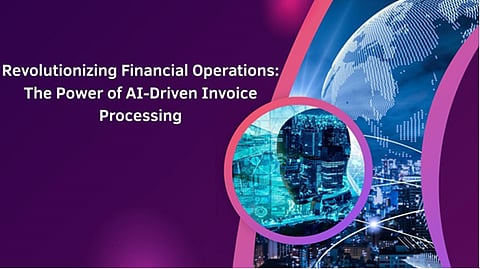

In the ever-evolving world of financial technology, the integration of Artificial Intelligence (AI) is reshaping how organizations process financial documents. Koteswara Rao Yarlagadda’s recent study highlights how AI-driven invoice processing is driving unprecedented improvements in speed, accuracy, and efficiency across industries. The innovations he discusses in his work underscore AI's transformative role in automating and optimizing financial operations, ultimately leading to significant cost reductions and operational excellence.
Artificial Intelligence is changing the process of invoices from an action that is historically slow and error-prone into a process that is faster with fewer errors. For example, AI solutions can achieve data extraction accuracy rates of up to 97.8% in extracting data from invoices, whereas traditional Optical Character Recognition (OCR) methods generally achieve data extraction accuracy rates in the 85-90% range.
This not only leads to greater accuracy being achieved for invoices but reduces processing time and processing costs substantially. Some organizations reported processing times being reduced by up to 71.3% and processing cost per invoice being reduced by 66%, illustrating the transformational impact AI is already creating in finance and the 'game changing' impact on business across the world.
AI completely transformed financial operations by automating document processing functions and limiting manual processing by nearly 92%. Machine learning and intelligent validation capabilities improve the speed of processing invoices, increase accuracy, improve fraud detection and manage compliance.
Companies that high volumes of invoices, such businesses that process more than 100,000 invoices a year, achieved direct cost savings of up to $2.1 million per year. Additionally, because of the scalability of AI, companies can increase processing capacity by 312% without the use of additional workforce, increasing efficiency and costs savings.
AI has become essential in the financial services industry for improving compliance and risk management. With increasing regulatory requirements, AI systems facilitate quicker, more precise compliance monitoring and real-time risk analysis. These technologies can analyze transactions and detect violations with unparalleled accuracy, minimizing human errors.
For example, banks have recorded a 93.2% reduction in human error in manual entries and a 78% increase in accuracy of compliance after implementing AI. These advantages assist organizations in preventing expensive fines and responding quickly to changing regulations and new threats.
AI has changed procure-to-pay (P2P) automation, reducing by 76% invoice processing time and reducing accuracy by 95%. By bringing AI to Enterprise Resource Planning (ERP) partner solutions, organizations have automated processes to go from capture to processing payment transaction of invoices.
Organizations can save an 83% decrease in processing costs, and bring down processing time. Artificial Intelligence based Optical Character Recognition (OCR) has been operating at 99.1% accuracy on structured documents and 95.3% on unstructured documents, which reduces manual data entry and improves operational efficiencies.
AI has greatly improved lease and supply chain management. AI has improved inventory accuracy by 95% and lowered operational expenses by 32%, allowing for improved risk avoidance and procurement optimization. AI-based lease management systems have cut processing cycles by 82% and improved accuracy by 96%, revolutionizing asset management.
These developments have not only optimized lease portfolio management but also enhanced regulatory compliance, making operations more efficient and productive. Through the use of AI, businesses can attain higher operational efficiency and lower costs in both supply chain and lease management operations.
The legal industry has also gained a lot from AI-based invoice processing. AI-based solutions in legal processes have cut document processing time by 76% and accuracy levels by 94%. These technologies have resulted in huge cost savings, with big firms saving more than $3.2 million every year. Sophisticated AI-based validation systems have mechanized intricate processes like invoice verification, which has long been a chokepoint in legal processes.
Moreover, the use of AI in legal document management has also improved efficiency by saving time taken in document retrieval by 91% and cross-departmental coordination by 82%. Such gains point towards the ability of AI to streamline operations in any sector, creating both efficiency and cost savings.
The earthly blend of Artificial Intelligence in finance is really just the beginning. As organizations continue to integrate AI technologies into their operations, there will likely be additional opportunities that will provide new efficiencies in process automation and optimization. Scaling a firm's capabilities, reducing costs, and increasing the accuracy, is changing the way businesses operate their payments and collection process.
In conclusion, the transformative impact of AI on financial operations cannot be overstated. Koteswara Rao Yarlagadda’s research underscores how these technological advancements are setting new benchmarks in efficiency, compliance, and cost management across industries. As AI continues to evolve, it will undoubtedly pave the way for even more innovative solutions, reshaping the financial landscape for years to come.
